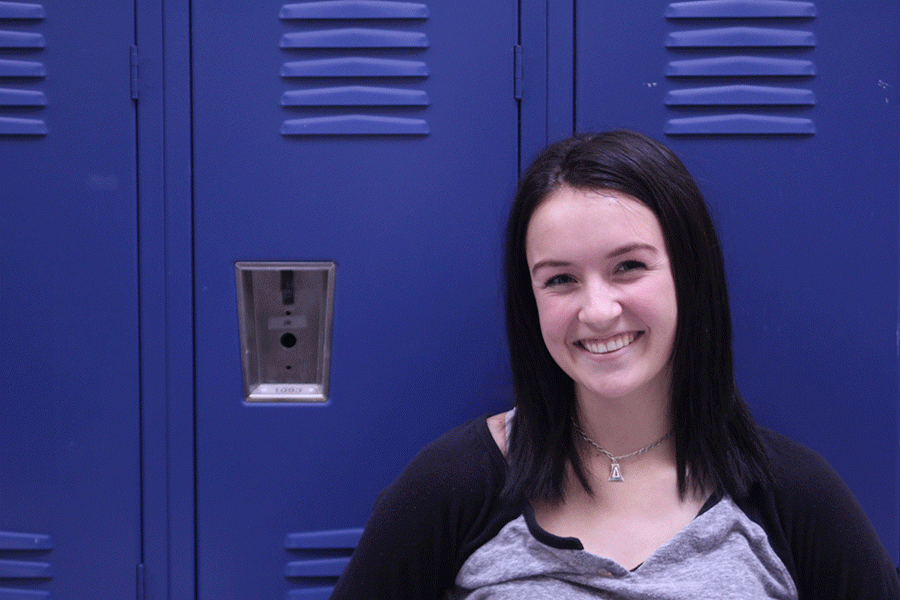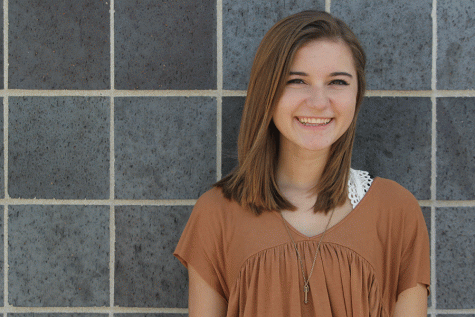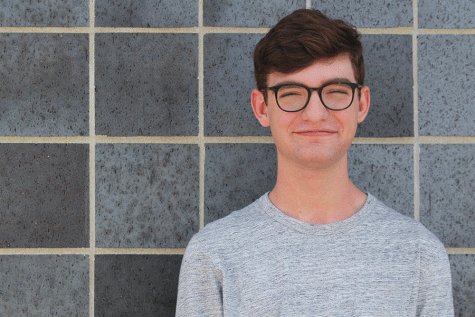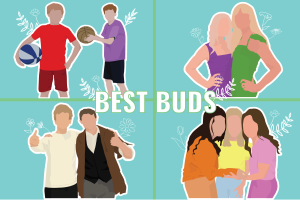Junior Alea Ashford competes and receives plaque for latest piano competition
Despite dealing with Carpal tunnel syndrome, Ashford continues playing piano and participated in her 12th annual Fall Festival piano competition Saturday, Oct. 24
By Ben Hoepner
January 17, 2016
How long have you been playing piano?
I’ve been playing piano since I was three, so 14 years.
How would you describe the process of Fall Festival?
Usually through the years you play different genres. Two or three years will be classical, the next years with be Romantic, Baroque and then contemporary. If you get a 4+ rating — that’s the highest rating — you get a ribbon that goes with it. You get a ribbon with each one, but they change colors and they change size. If you complete all the years in one category you get a plaque. Once you finish all the years, there’s one more plaque that I just got a couple weeks ago, and it’s got all the different ones [categories] on the bottom and my name. So I guess it’s just one of the broader competitions that I do.
How did you practice and prepare for the contest?
Practice never ends for piano. I’ve been practicing for years straight and with playing tennis and all the other things I do with high school, it gets hard and I don’t practice as much as I need to. I should be practicing 2-3 hours a day. Sometimes I’ll get that in; most of the time it’s an hour or an hour and a half that I’ll practice every night. Usually two to three weeks before a competition I’ll get really into it and practice hours and hours on end, perfecting everything down. I chop the pieces up into parts and I’ll play four notes over and over again until I get it exactly how it needs to be.
How did you find out about the contest and get involved?
My piano teacher does all the coordinating for me. I never really do anything by myself. He’s always been my rock in how I’ve played, and so has my dad. When I was musically ready to start, he was like, ‘Hey, you going to sign up for this?’ and I just started doing them and I’ve been doing it ever since.
How competitive would you say the Fall Festival was?
It’s a weird atmosphere because you walk into the MidAmerica Nazarene and the level that I’m at is in either the performance hall or one of the performance rooms. So I’ll walk in and there can be kids of any ages, because Fall Festival doesn’t do it by groups, they do it by what music you’re playing. Usually I’m the oldest because piano isn’t usually taken this seriously at my age, so usually I’m one of the older kids and I’ll see all the little kids with pieces I’ve played before. In Fall Festival people can come in, we’ll all sit in our seats lined up in order and the parents will sit behind us if they want to come in. Then we’ll each get called up in the row and play. It’s different because I’m not in a group where people are playing the same song as me; everyone is normally playing lower levels, so I’m usually like, ‘OK, let’s do this.’
About how many people participated?
In my audition, there [were] 12 kids, including myself, but this is a three-day process and it goes from 8 a.m. to 4 p.m. Fall Festival is a bunch of different instruments — it’s not just a set instrument — but piano is the most picked instrument. So there’s tons of kids participating, but they go in groups.
What is your hand condition?
I have carpal tunnel [syndrome] in my wrists. Basically, what it is is where the carpal tunnel, a tube that runs through both of your wrists, starts to erode away. Since I’ve played piano all of my life I’m moving my wrists and holding [my] hands up. A lot of people that have keyboard jobs get it because they’re constantly at an arch position. It’s increased during tennis season this year. It started killing me and I didn’t realize what it is — it’s a pain I don’t know how to explain because it’s only when I’m grabbing something, like after I’ll play tennis or piano for a while. My muscles are conditioned to play piano, but for tennis I have to have a lot more muscle, the parts that are in between all of my finger tendons and bones feels like it’s ripping and it’ll go down into my wrists and in between my joints.
How has it affected your ability to play piano?
It hasn’t because my hands are so conditioned to play the piano. I pushed past middle school level, which was mentally the hardest because I wanted to quit. I didn’t really realize how important it’d be until I got into high school and realized it was what I was going to do with my life. So it’s a pain I can get through, and I don’t get it that often, especially when I’m paying attention to what I’m eating and drinking and how I am with my hands. If I hold them the right way, they won’t hurt, it’s when I’m slacking off it will.
What are your plans with piano in the future?
I’m planning to major in piano performance at a conservatory, and after two or three years at that conservatory you want to learn from different people and learn the different ways of playing, so I’ll probably go to a higher level. Fourth or fifth year, I plan to go to Cambridge, which is across the seas, and study there at a conservatory. Usually, you pick the composer you’re most like and play all of their pieces and play concerts like them. I plan to get into theater more because that would be fun; I play a lot of instruments and I sing so I’ll probably go into that.











